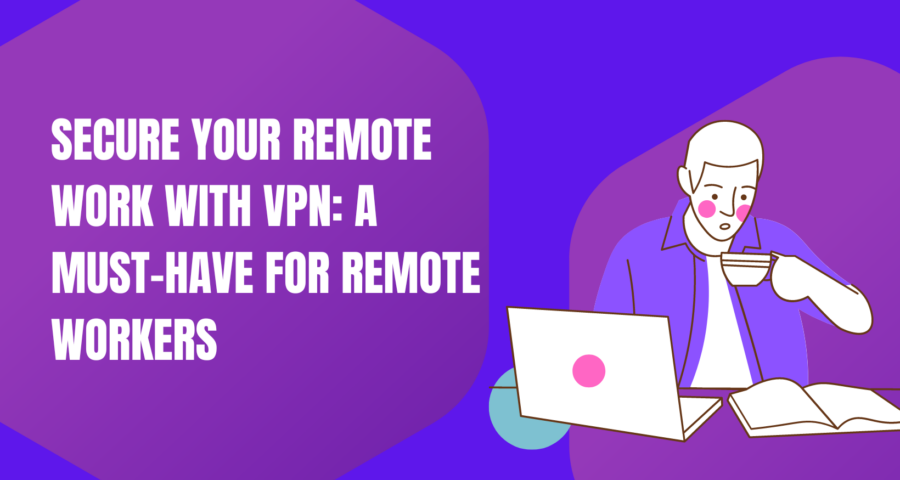Introduction:
In recent times, remote work has become the norm. With the rise of the COVID-19 pandemic, businesses have had to adapt to new work arrangements, including remote work. This shift has led to an increased demand for Virtual Private Network (VPN) services. In this blog, we’ll explore the advantages of using VPN for remote work and why it’s important for remote workers to use a VPN.
What is a VPN?
A Virtual Private Network (VPN) is a technology that allows you to create a secure and encrypted connection to another network over the internet. It creates a secure “tunnel” between your device and the internet, ensuring that your online activities are private and secure.
Advantages of using VPN for remote work
- Security:
One of the primary advantages of using a VPN for remote work is security. When working remotely, you’ll often be connecting to public Wi-Fi networks, which are not secure. Public Wi-Fi networks are vulnerable to hackers who can easily intercept your online activities, including your passwords, emails, and sensitive information. A VPN encrypts your internet connection, making it difficult for hackers to intercept your online activities.
- Access to company resources:
Another advantage of using VPN for remote work is that it allows remote workers to access company resources securely. With a VPN, remote workers can connect to their company’s network and access files, documents, and other resources securely. This means that remote workers can work from anywhere in the world, while still having access to the same resources they would have if they were in the office.
- Improved productivity:
Using a VPN for remote work can also improve productivity. With a VPN, remote workers can access company resources faster, which means they can complete their work more efficiently. VPNs also offer faster internet speeds and reduce the risk of downtime, which can help remote workers stay productive and avoid frustration.
- Access to geo-restricted content:
Finally, a VPN can also give remote workers access to geo-restricted content. Some websites and services are only available in certain countries or regions. With a VPN, remote workers can connect to a server in a different country or region, allowing them to access websites and services that are not available in their location.
Conclusion
In conclusion, a VPN is an essential tool for remote workers. It offers security, access to company resources, improved productivity, and access to geo-restricted content. With the rise of remote work, it’s important for businesses to ensure that their remote workers are using a VPN to keep their online activities secure and private.


Leave a Reply